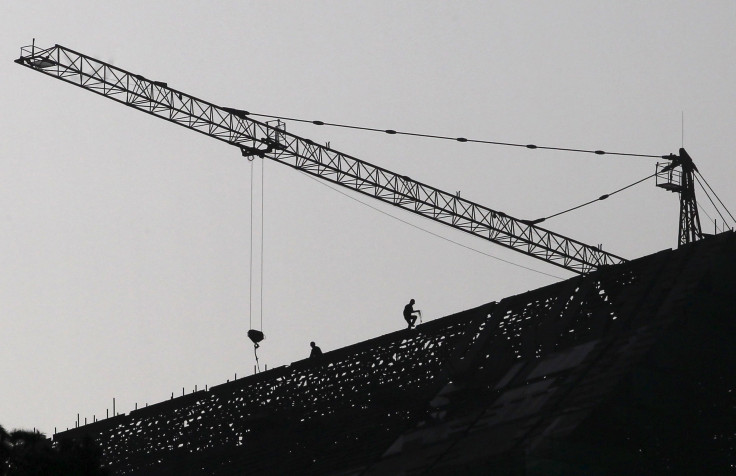People's Bank Of China Sees Chinese Economic Growth Around 6-7% In The Next Few Years

BEIJING (Reuters) -- China will be able to keep economic growth at around 6 to 7 percent annually over the next three to five years, a top People's Bank of China policymaker said Saturday, a day after the bank cut interest rates for the sixth time in less than a year. The comments by Yi Gang, vice governor of the PBOC, appeared to be aimed at reassuring investors this level of growth, the slowest pace in two decades but still faster than other major economies, is the Chinese economy's "new normal."
"China's future economic growth will still be relatively quick. Around seven, six-point-something -- these will all be very normal," Yi said at a conference in Beijing.
As well as cutting interest rates Friday, the PBOC lowered the amount of cash that banks must hold as reserves.
Both moves were bids to jump-start growth in China's slowing economy, a drag on global growth that has been of major concern in emerging markets and other leading economies.
Monetary-policy easing in the world's second-largest economy is at its most aggressive since the 2008-2009 financial crisis, as growth looks set to slip to a 25-year-low this year of under 7 percent.
China will lower the reserve requirement ratio -- the amount of cash that major banks need to keep on hand -- in the future at a "normal" pace, Yi said. The vice governor said the PBOC planned to keep interest rates at a reasonable level to reduce the corporate debt burden, and noted that interest-rate liberalization does not mean that the central bank would reduce regulation of rates. China will also continue to set benchmark lending and deposit rates for some time, he said, but these rates would not restrict market pricing.
Data released Monday showed China's economy grew 6.9 percent between July and September from a year earlier, dipping below 7 percent for the first time since the global financial crisis.
Yi noted that China's stock market, which has fallen sharply since June, had completed most of its adjustments and that the yuan, which was buffetted in the wake of a surprise devaluation in early August, has stabilized. The PBOC was looking into leverage levels in the debt market, he noted.
Yi also commented on China's debt levels. He said China did not have exceptionally high debt levels, and while the bank is not overly anxious about cutting the level of leverage in the economy, the overall strategy is to stabilize leverage levels.
(Reporting by Gui Qing Koh and Alexandra Harney; Editing by Jeremy Gaunt)
© Copyright Thomson Reuters {{Year}}. All rights reserved.




















